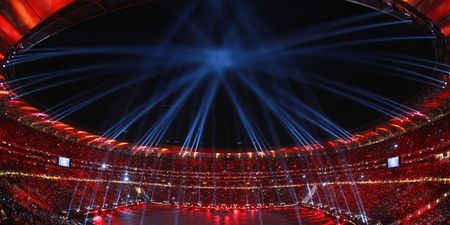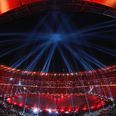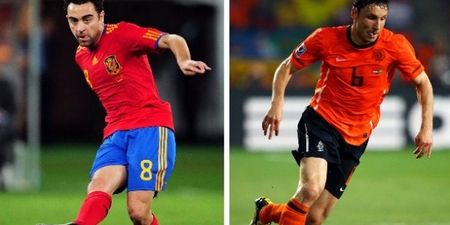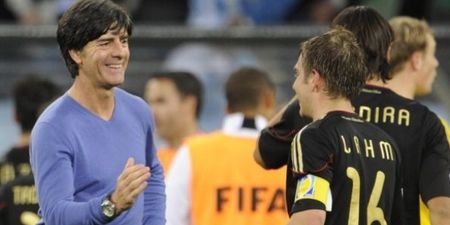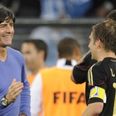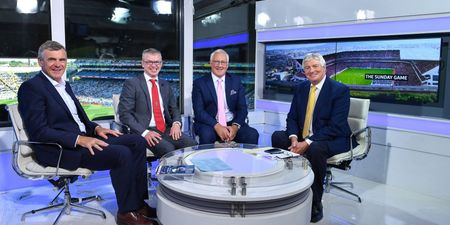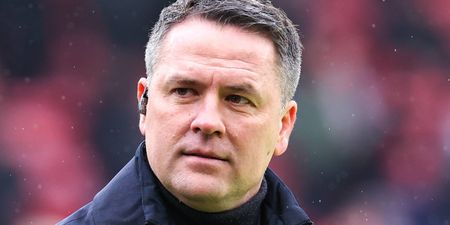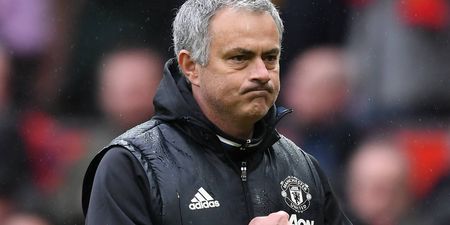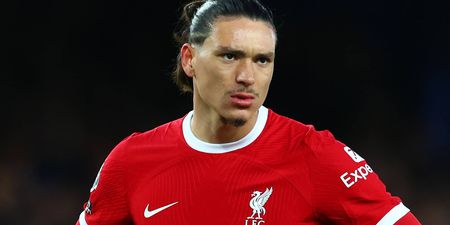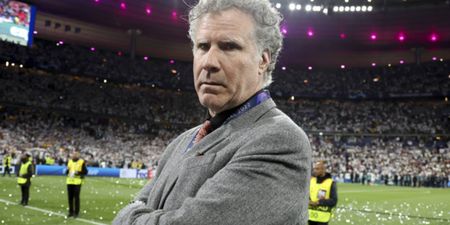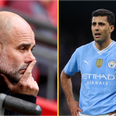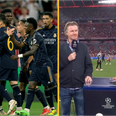
The European and World champions have achieved a paradoxical greatness: relentlessly creative and attacking, they rarely score and never concede, writes Ken Early.
Â
Sepp Blatter rarely utters three consecutive sentences without mentioning football’s capacity to connect and unite people. At Soccer City on Sunday night, the 85,000 fans – whatever their loyalties – found themselves united in three moments. First the beaming Nelson Mandela was wheeled out on the back of a Popemobile, and the 85,000 cheered. Then the pitch invader Jimmy Jump slowed down to rub his hands just before molesting the World Cup trophy, only to be felled by a concussive punch from a security man, and the 85,000 laughed. The third moment came when Howard Webb stepped forward to receive his award for officiating the match, and the 85,000 booed, except for those who were too busy laughing at the booing.
A frequent criticism of referees who make a mess of games is that they want to be the star of the show. Webb seemed to have the opposite problem: he didn’t want to “spoil” the World Cup Final by sending off a player in the first half. So he meekly stood by as Holland crunched into brutal tackles that should have seen them reduced to ten men – arguably nine – before half time. Was the intimidation a deliberate tactic by Holland, to drag Spain into an battle of attrition and distract them from their real goal? If so, it seemed to work as Spain lost their passing rhythm of the first ten minutes, and didn’t regain it until shocked into action by Robben’s misses in the second half.
Selfishness and honesty
The second miss was the pivotal moment of the game and showed how the lure of glory can scramble the brain. With Robben surging down the middle, Puyol grabbed at him from behind and had the Dutchman fallen, Puyol would certainly have been sent off. With eleven against ten Holland would probably have gone on to win the World Cup. Everyone knows Robben needs only a touch to go down. But at that moment all he wanted was to score the winning goal in the World Cup final: a fatal instant when selfishness and honesty converged in perfect alignment. Like a bull he shrugged Puyol off and ran into the box before realising, too late, that Casillas was already pouncing at his feet.
A few minutes later Andres Iniesta broke through at the edge of Holland’s box only to fall under a pat on the back from Johnny Heitinga. Heitinga was off and Spain knew the Cup was theirs. Holland had already made one brave substition, with van der Vaart on for de Jong, and one puzzling one, with Braafheid on for van Bronckhorst. Without Heitinga’s leadership, van Bronckhorst’s experience and de Jong’s uncompromising brutality the Dutch back line fell apart, and inevitably Iniesta, whose tireless imagination has opened up so many defences for Spain, found the space to strike the killer blow.
It was as though Holland had decided if they couldn’t win beautifully in ’74, ’78 and ’98, they would try winning ugly – really ugly – and see if that worked
Spain now take their place as one of the classic European sides along with the Italians of the 1930s, the Hungarians of the 50s, the Germans and Dutch of the 70s and the French of around 2000. Their greatness is paradoxical – a relentlessly creative, attacking team that rarely scores and never concedes. A total of eight goals in seven matches makes them the lowest-scoring World Cup winners ever, while they have kept seven clean sheets in seven knockout games at the Euros and World Cup. Some have moaned that Spain don’t score enough to be considered a great side. These people are mixing up the quantity of goals with the quality of football – if they were one and the same thing, coaches around the world would be studying footage of Motherwell 6-6 Hibs. Maybe Spain’s highlights reel could use some extra goals and everyone would have enjoyed a Carlos Alberto-style flourish, but what will stay with everyone who saw them here is their control, their flawless teamwork, the sense of inevitability with which they pursued and eventually overwhelmed their opponents.
Holland remains a country that produces a lot of great talking about football. The team has not always been true to the lofty principles espoused by its writers and former players. According to Opta, Holland have committed more fouls than any other team at four of the last seven World Cups in which they’ve competed. But this particular team went beyond mere pragmatic clogging towards something that looked suspiciously like a conscious repudiation of the old Cruyffian principles. It was as though they had decided if they couldn’t win beautifully in ’74, ’78 and ’98, they would try winning ugly – really ugly – and see if that worked. It turns out the old way of losing was better.
The good news for Holland is that in football your national image takes an eternity to change. Every international coach who faces Ireland dutifully pays tribute to their physical strength and aerial prowess, even though most of the Irish players are small and not great in the air. Brazil have been sending out tough defensive teams for 20 years yet their reputation for entertainment means they’re still the biggest draw in the game. Nobody is about to forget total football just because Holland haven’t actually played it since the 1970s. It might only be nostalgia, a dream, but when future Dutch teams play people will still hope they can bring the dream back to life, long after the hackers of 2010 have faded from memory.
Â




